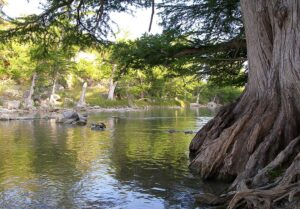Hey there! If you’re in the market for a water softener but feel overwhelmed by the options, you’re not alone. Selecting the right system can seem like a daunting task, but we’re here to simplify it for you. In this guide, we’ll walk you through everything you need to consider, from household size and water usage to the specific water hardness issues in your area. Let’s get started!
Understanding Water Hardness
Before diving into the nitty-gritty, let’s cover the basics. Water hardness is caused by the presence of minerals like calcium and magnesium. The higher the concentration of these minerals, the harder your water. Hard water can lead to a variety of problems, including limescale buildup, reduced appliance efficiency, and dry skin and hair. Fortunately, water softeners offer several benefits that help protect you and your home from hard water.
Assessing Your Water Hardness Level
The first step in choosing a water softener is to determine the hardness of your water. You can do this by:
- Testing Your Water: Purchase a water hardness test kit from a hardware store or online. This simple test will give you a reading in grains per gallon (GPG) or parts per million (PPM).
- Contacting Your Water Provider: Many local water utilities provide water quality reports that include hardness levels. Check their website or give them a call.
Factors to Consider When Choosing a Water Softener
Now that you know your water hardness level, let’s look at the key factors to consider when selecting a water softener:
1. Household Size and Water Usage
One of the most important factors is the size of your household and your daily water usage. Water softeners are rated by the amount of hardness they can remove, typically measured in grains. Here’s a quick guide:
- Small Households (1-2 people): A system that can handle 24,000-32,000 grains is usually sufficient.
- Medium Households (3-4 people): Look for a system rated for 32,000-40,000 grains.
- Large Households (5+ people): Consider a system with a capacity of 40,000 grains or more.
2. Regeneration Method
Water softeners use two main regeneration methods: timer-based and demand-initiated.
Timer-Based Regeneration: This type regenerates on a set schedule, regardless of water usage. While more predictable, it can be less efficient and waste water if not timed correctly.
Demand-Initiated Regeneration (DIR): This method regenerates based on actual water usage, making it more efficient and economical in the long run.
3. Salt-Based vs. Salt-Free Systems
Traditional water softeners use salt to remove hardness minerals, but there are also salt-free alternatives.
Salt-Based Systems: Effective at removing hardness but require regular maintenance and salt refills.
Salt-Free Systems: Use alternative methods like template-assisted crystallization (TAC) to prevent scale buildup. These systems are low-maintenance but may not be as effective in areas with very hard water.
4. Installation and Maintenance
Consider the installation and maintenance requirements of the water softener. Some systems are easier to install and maintain than others. If you’re handy, you might be able to install it yourself; otherwise, professional installation is a good idea.
5. Additional Features
Look for additional features that can enhance the performance and convenience of your water softener:
- Built-In Water Filter: Some units come with a built-in filter to remove additional contaminants.
- Smart Technology: Advanced models offer smart technology features, allowing you to monitor and control the system remotely via a smartphone app.
- Warranty and Support: A good warranty and responsive customer support can provide peace of mind.
Conclusion
Choosing the right water softener for your home doesn’t have to be complicated. By considering your household size, water usage, local water hardness, and the features that matter most to you, you can find a system that perfectly meets your needs. Remember, the right water softener will not only improve your water quality but also protect your appliances and enhance your overall quality of life.
Ready to find the perfect water softener for your home? Shop our range of water-softening products to get started on the path to better water quality!




